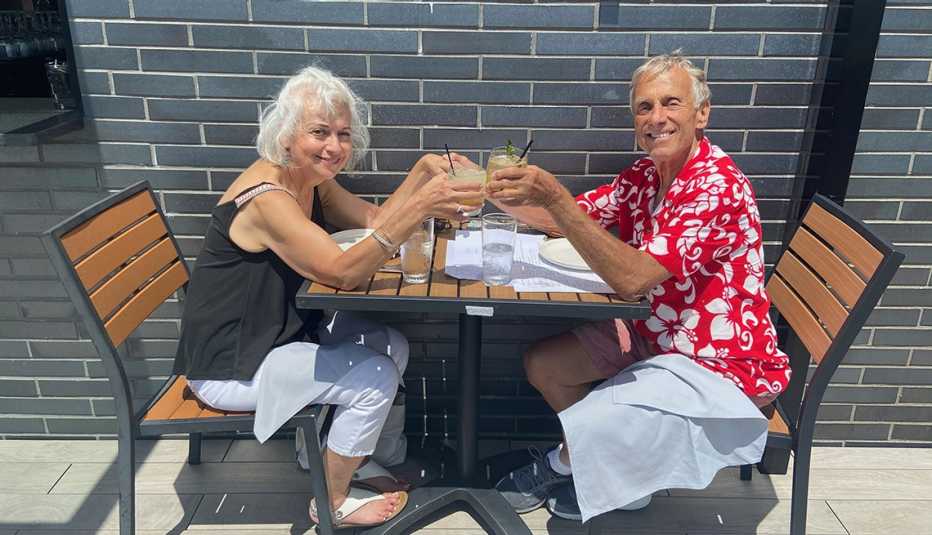Staying Fit
What happens when close friends invite you to join them on a vacation, but you're not comfortable with their quarantine protocols? How about if a pal asks you over for a home-cooked dinner at the kitchen table, but you're sticking to al fresco socializing? What if you ask your buddy to go on a road trip but she wants you to wear a mask in the car?
The question is how to navigate — or even turn down — these pleasant offers without offending anyone or damaging friendships.


AARP Membership— $12 for your first year when you sign up for Automatic Renewal
Get instant access to members-only products and hundreds of discounts, a free second membership, and a subscription to AARP the Magazine.
COVID-19 has affected every facet of our lives, including how we socialize. When people have different comfort levels with everything from masks to group outings, keeping friends from feeling insulted or judged can be a challenge, says Gayle Whitlock, a marriage and family therapist in Santa Rosa, California.
Varied requirements around social distancing from state to state and even among regions have prompted many people to develop their own “boundaries and comfort levels,” Whitlock says. “Some people are more risk adverse and some are rule followers, and that's going to seep into relationships."
Jim Owen and his wife, Stanya, both 79, recently moved from Austin, Texas, to San Diego. Their closest friends, both in their 80s, wanted to host a going-away meal at a restaurant, something Owen insisted was too risky.
The friends were “indescribably hurt by this, because in their minds, we're as close as family, so we would be safe,” says Owen, an author and producer of the coming documentary The Art of Aging Well. “We said, ‘We promise we will see you again. We just cannot see you now.'"


Brainstorm together to reach consensus
To prevent hurt feelings or to negotiate terms everyone is comfortable with, focus on the relationship and not the specific activity being suggested, says Shasta Nelson, a friendship expert in San Francisco and author of The Business of Friendship. "The goal is not the cottage or the restaurant or the party. The goal is the relationships you foster in those settings,” Nelson says.
If you're the host or initiating a visit, it's your responsibility to cater to the needs of everybody you're reaching out to, she says. Make sure you are up front about who is likely to attend — don't invite surprise guests.
"Treat it the way you would with friends that don't have the same amount of money,” Nelson says. “You wouldn't talk somebody into something that was beyond their financial ability, so offer up options to make this work and express acceptance.”



































































